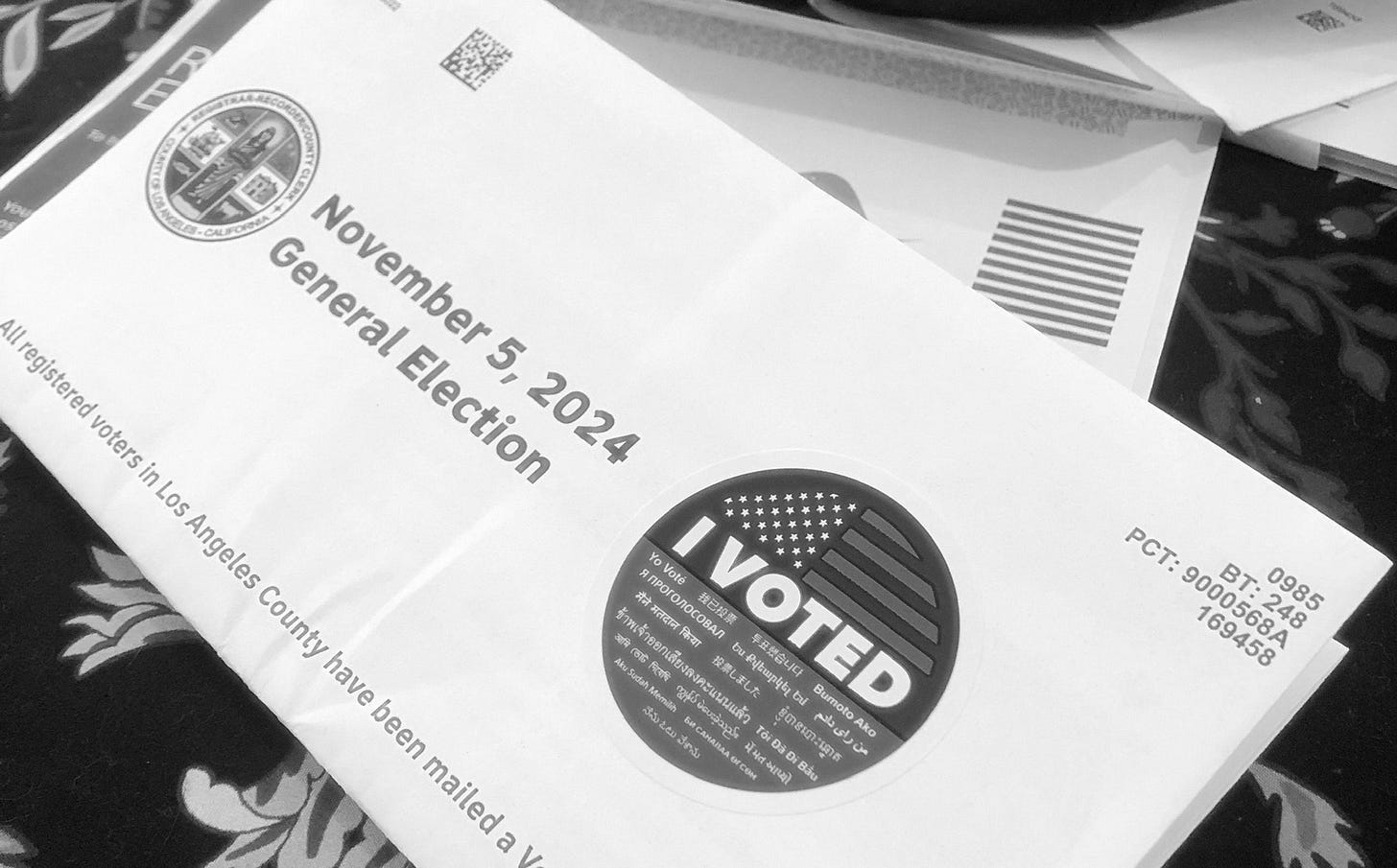“I mean, say what you want about the tenets of National Socialism, Dude, at least it's an ethos.” — Walter Sobchak
For the second time in eight years, I’ve taken red-eye flight to London on the night of the presidential election. The first time, part of my reasoning was pure naivete. I thought I knew what to expect. So did most everyone.
The first time, I was one of several Americans wandering around an academic conference in central London with a stunned-dazed-terrified look on our face. We made anxious jokes about declaring refugee status in the United Kingdom. Some of us just got blind stinking drunk.
Not now. Those of us who thought we knew just how bad things could get in the United States have by now been disabused of our complacency. There’s a certain stoicism among the Yanks here this year. It’s neither resignation nor defiance, just an acknowledgement that this kind of thing is part of American life now.
If only American liberals had learned the same lessons. The 2016 election should have been the moment when everyone learned just how vapid and useless the pollsters had become, how contingent numbers are when you can game an outdated electoral system. Clinton voters who had clung fiercely to Nate Silver’s tea leaves suddenly wondered how their faith could have been so gravely betrayed.
You would think this would give them a playbook of what not to do. The only change was the addition of vibes. But “brat summer” is not politics. They are evidently enough to blind you to your own lack of strategy however. To make you think that you don’t need to deliver substance after the glare of the vibes fade and everyone can see a lot more clearly. To give the same stale and empty rhetoric the illusion of meaning.
Donald Trump had no such trouble. Spectacular and cynical as his behavior was, we knew what he meant. And either he or the people around him knew there would be enough precarious middle-class in the United States for their weaponized instability to matter. Around this center of gravity, everything else would fall into place. In particular the support of younger males, black, white, and brown. And it was enough for Trump to win the popular vote for the first time ever. All that ranting and raving about stopping a second steal for nothing.
All of this was enough to drag along the Democrats, and its cutting edge, the Harris/Walz campaign, let it. Last night, our cab driver asked my wife and I what exactly Kamala Harris stood for. We had no answer. He said all he could hear from her was how she wasn’t Trump. That was all we had heard too, and we pay closer attention than most.
Yes, there would be an occasional talk from Harris about housing policy or tax credits. But for the most part, it was all about the dangers of Donald Trump, how this man who had survived two assassination attempts was out to undermine American democracy. Turns out he had no need to.
It will be worse this time around, make no mistake. Both Harris and Biden have essentially paved the way for it to be like this. Which raises a question. What exactly are the Democrats for? What is this party, which can only define itself against the clearly defined barbarism of the right, and has spent just as much time and effort exiling or taming its left in recent years? For whom have they been sicc’ing the cops on campus Palestine solidarity protesters, other than to completely fumble the college-aged vote?
The canned answer is that the Democrats are first and foremost a party of neoliberal capital, adept at speaking to identity and all-thumbs when it comes to bettering working lives. But with neoliberalism morphing into its more vicious variant, possibly something entirely different, capital is learning not just to make its peace with the far-right but to outwardly embrace it. If we might manage to look beyond the cognitive limits of American exceptionalism, to see what plays out in Hungary, in Argentina, in France, we’ll see the empty space that awaits American liberalism.
Header photo is by the author.





